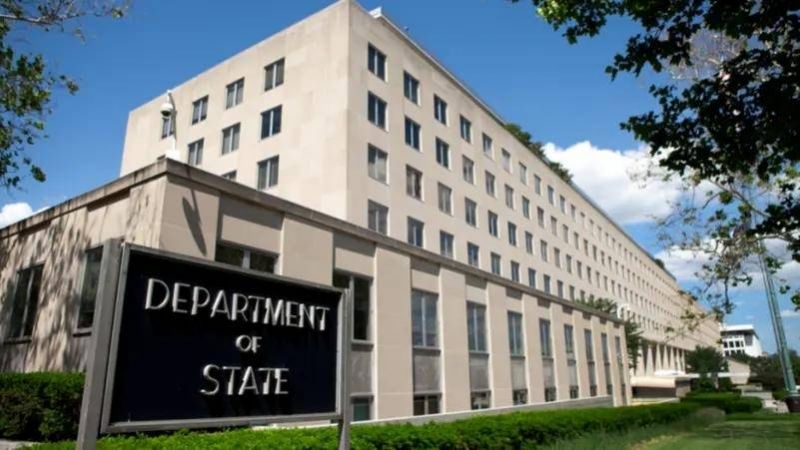
The State Department building in Washington. (Credit: AFP)
BEIRUT — Senior US diplomat, Under Secretary of State Victoria Nuland, had a “constructive” phone call with Lebanon’s Parliament Speaker Nabih Berri, urging the election of a president, she said in a tweet Tuesday night.
In her tweet, Nuland stressed “the urgency of electing a president and enacting legislation on critically needed IMF reforms. Appreciate his [Berri's] commitment to try to keep quorum and hold open electoral sessions as long as it takes to get the job done.”
Had a constructive call with Lebanese Speaker Berri about the urgency of electing a president and enacting legislation on critically needed IMF reforms. Appreciate his commitment to try to keep quorum and hold open electoral sessions as long as it takes to get the job done.
— Under Secretary Victoria Nuland (@UnderSecStateP) June 13, 2023
Earlier on Tuesday, US State Department spokesperson Matthew Miller told reporters that the US wanted "the country's leadership to adopt a sense of urgency in meeting the critical needs of the Lebanese people, starting with the selection of a president."
The 12th parliamentary session to try choosing a president is set to start Wednesday at 11 a.m. Lebanon has been without a head of state since the end of Michel Aoun's six-year term on Oct. 31, 2022.
In May, the US had also called on Lebanon to elect a president.
“The United States calls on Lebanon’s political leadership to move expeditiously to elect a president to unite the country and swiftly enact the reforms needed to rescue its economy from crisis,” Miller said at the time.
France, the United States and Saudi Arabia hold regular consultations on Lebanon. Their representatives met in February in Paris to discuss the crisis, without achieving any tangible progress.
All previous sessions dedicated to electing the next head of state have failed. The first session took place on Sept. 29. To hold a session to elect a president, Parliament requires a quorum of two-thirds of MPs (86 out of 128). The same goes for the first round of the actual voting, according to Berri. Amal and Hezbollah MPs, as well as their allies, have withdrawn from the chamber after the first round of voting in all of the last 11 parliamentary sessions to elect a president — forcing a lack of quorum.
During Wednesday's session, votes are expected mainly to go to former Finance Minister Jihad Azour — head of the Middle East and Central Asia Department at the International Monetary Fund, though currently on leave for the election — and Marada Movement leader Sleiman Frangieh. The former is backed by the Lebanese Forces, the Progressive Socialist Party, the Free Patriotic Movement, Kataeb and some Forces of Chance and independent MPs. The latter has the backing of Hezbollah, Amal Movement and their allies.
In addition to having no president since Nov. 1, Lebanon has not had a fully empowered cabinet since May 2022 legislative elections. In the meantime, Najib Mikati's cabinet has served only in a caretaker capacity.